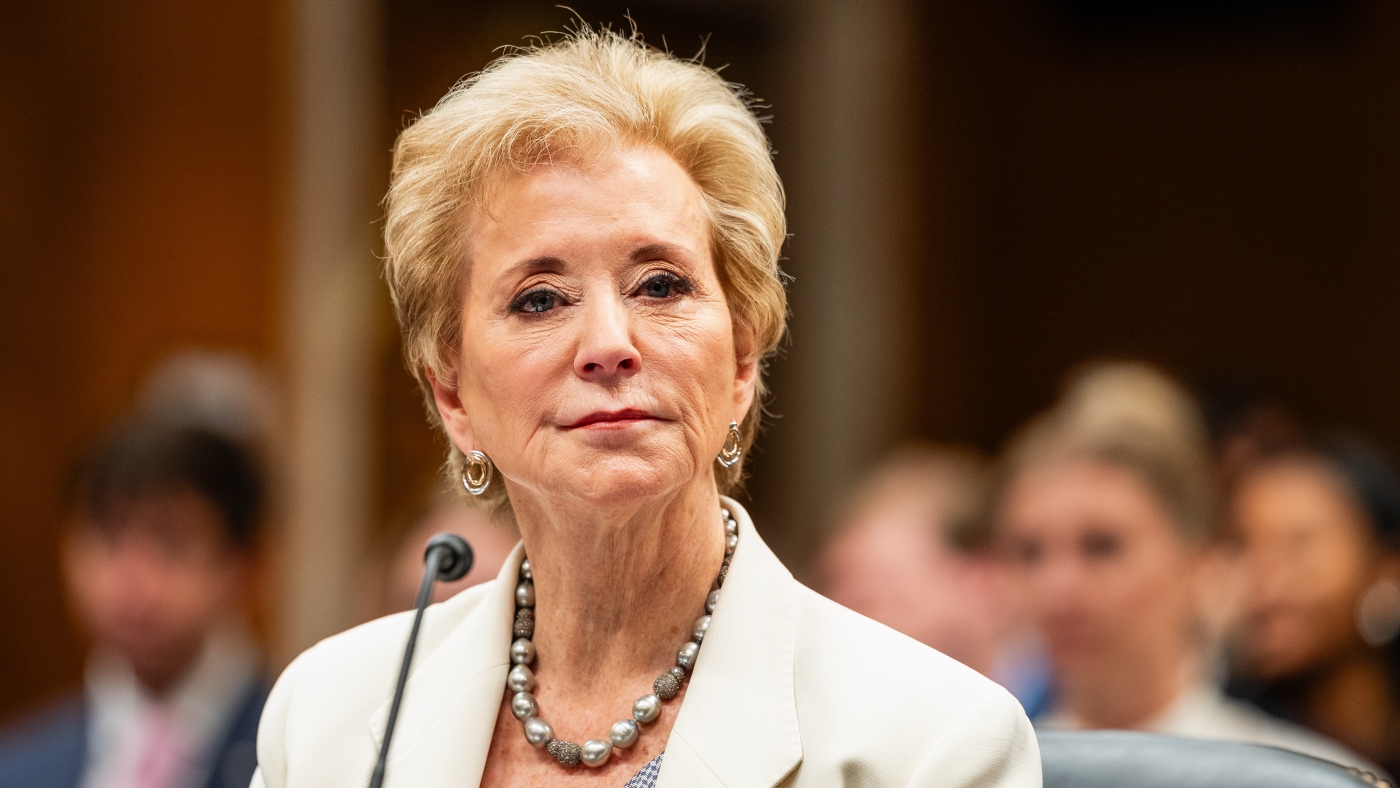Trump Administration Proposes Budget Cuts to Education Department
The Trump administration has unveiled a new budget proposal for fiscal year 2026, aiming to reduce the U.S. Department of Education’s funding by 15%. Despite this significant cut, the budget plans to maintain funding for two critical federal programs: Title I, which supports schools in low-income areas, and IDEA grants, which assist students with disabilities.
This proposal has raised concerns, particularly as the administration simultaneously seeks to eliminate or cut funding for other programs, including the TRIO programs, which help low-income and first-generation college students.
Senate Hearing Highlights
During a recent Senate appropriations subcommittee hearing, U.S. Secretary of Education Linda McMahon faced tough questions from lawmakers about the proposed budget cuts. Sen. Markwayne Mullin criticized the department’s past performance, citing declining test scores and questioning its efficacy. “What we’re doing is not working,” Mullin stated.
Some Republicans argue that the department has failed in its mission, suggesting this justifies the proposed funding reduction. However, critics counter that the department does not directly control school curriculums or teaching methods. Successful state-led educational improvements, such as those in Alabama and Louisiana, were also noted during the hearing.
Implications for Student Loans
Another contentious issue addressed was student loans. McMahon suggested that colleges should share the financial responsibility for loans that students default on, arguing that the burden should not fall solely on the federal government. “Loans are not forgiven or just go away, they’re just shouldered by others,” she explained.
Legislation has been proposed to hold colleges accountable for a portion of these unpaid loans, and to provide greater transparency regarding the return on investment of college programs.
Concerns Over Mental Health Funding
Democrats expressed strong concerns over the administration’s decision to halt $1 billion in grants intended for hiring mental health professionals in schools. Sen. Chris Murphy condemned this action, calling it “a really cruel thing to do to those kids.”
McMahon defended the decision, citing concerns over certain programs’ association with DEI ideologies and advocating for state-level control over such initiatives.
The Future of TRIO Programs
The proposed budget also targets federal funding for TRIO programs, which would be discontinued under the new plan. There was bipartisan support for maintaining these programs, with Sen. Susan Collins highlighting their positive impact on low-income and first-generation students.
McMahon stated that the department lacks the capability to properly audit these programs, prompting some lawmakers to suggest addressing accountability issues rather than eliminating the programs altogether.
Workforce Development Funding
The administration’s proposal to consolidate and reduce funding for workforce development programs faced scrutiny from both sides of the aisle. Rep. Bobby Scott questioned the extent of the proposed cuts, seeking clarity on whether they would result in approximately a 33% reduction across the board.
McMahon emphasized the importance of developing workforce programs without relying solely on federal funding. She mentioned the potential expansion of public-private partnerships, citing a successful collaboration in West Virginia between community colleges and Toyota, where students gain practical experience in the automotive industry.
This article was originally written by www.npr.org







Be First to Comment